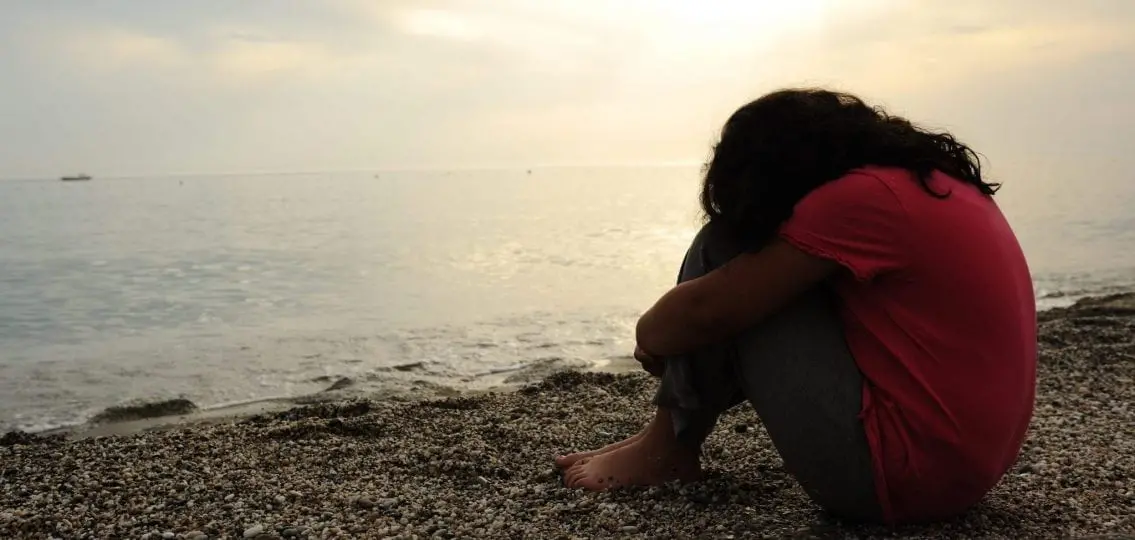Teens with bipolar disorder often suffer alone because their symptoms can be misdiagnosed. Here is one young adult’s story of her path to her diagnosis.
I Have Bipolar Disorder
When I was merely ten years old, I would often slam my eyes shut and dream that my classmates were chasing after me with knives. These night terrors might have been the first clue that something was very wrong with me, psychologically. During the day, I would engage in risky behaviors like riding my bike as fast as I could down my driveway and into the street. I also feared regularly that I would be kidnapped when my parents could not protect me on my way to school or the library.
As a child and teen, my moods were entirely unpredictable. I would giggle my way through drama club even when nothing was funny. This would often be followed by sobbing in a bathroom stall. As a young teen, my parents divorced and I moved across the country with my mom and brother. I was fourteen and just starting high school, and my moods were changing more quickly than I could make sense of them.
Bipolar Disorder In Teens
At the beginning of high school, I was a cheerleader and in the “in crowd”. But despite being popular and getting everything I had ever wanted, I was miserable. I could barely make it through a class without either laughing hysterically or crying from the pain of having this sickness that I couldn’t quite understand. I knew I was sad, and quite often too. But I also fooled myself into thinking I was okay.
I had my first psychiatric evaluation when I was ten, but didn’t start choking down antidepressant medications until my life was spinning out of control when I was fourteen. When the psychiatrist prescribed Prozac, the happy, giddy periods seemed to diminish and I lost my ability to sleep again. As I paced restlessly around my house while my family slept, I just couldn’t figure out the cause of my pain. At that time, I didn’t know that antidepressants often negatively affect teens with bipolar disorder like me and make their symptoms worse.
Before long, we moved a few hours away and life at my new high school was no better. My worried mother transported me from one psychiatrist to another, constantly scribbling out checks for the co-pays for all the doctors who weren’t helping me, and the medications that only seemed to be making me worse.
I continued to get more irritable and even full of rage. I spent most of the school day in the social worker’s office. The true state of my condition was unknown at that time and it was very hard to manage. I almost landed myself in a special school for teens with emotional and psychiatric disabilities.
Dealing With Bipolar Disorder
At fifteen, I swallowed enough pills to land me on a rickety stretcher in a corner of the Emergency Room. I was still cycling through one antidepressant after another—and growing even more unstable each day. My family was growing very concerned about my unraveling and my inability to function in the real world. My teachers and guidance counselors questioned whether or not I would be able to attend college.
During my senior year of high school, I finally received the correct diagnosis and was set on the right path to healing from years of misdiagnosis. My father also carried a diagnosis of bipolar disorder. It probably should have been a red flag for every psychiatrist I saw, as this is a very genetic illness. Dr. Parker saved my life when he wrote out those initial prescriptions for Depakote and lithium and educated me on all the lifestyle changes I would need to make.
Gradually, over the course of my final year of high school, my moods evened out some. I was able to tolerate AP English and being around my classmates again. Everyone was more hopeful about my future, as I managed to graduate as the salutatorian of my class.
I went through the same process of misdiagnosis that many other teens go through. I spent much of my adolescence swallowing pills that only made me much worse. It is essential to get an accurate assessment and diagnosis if bipolar disorder is suspected at all. I often wonder if, like other teens with bipolar disorder, my adolescence would have been easier if I had been on mood stabilizers from the moment my suffering was apparent to my parents—way back when I was ten.




